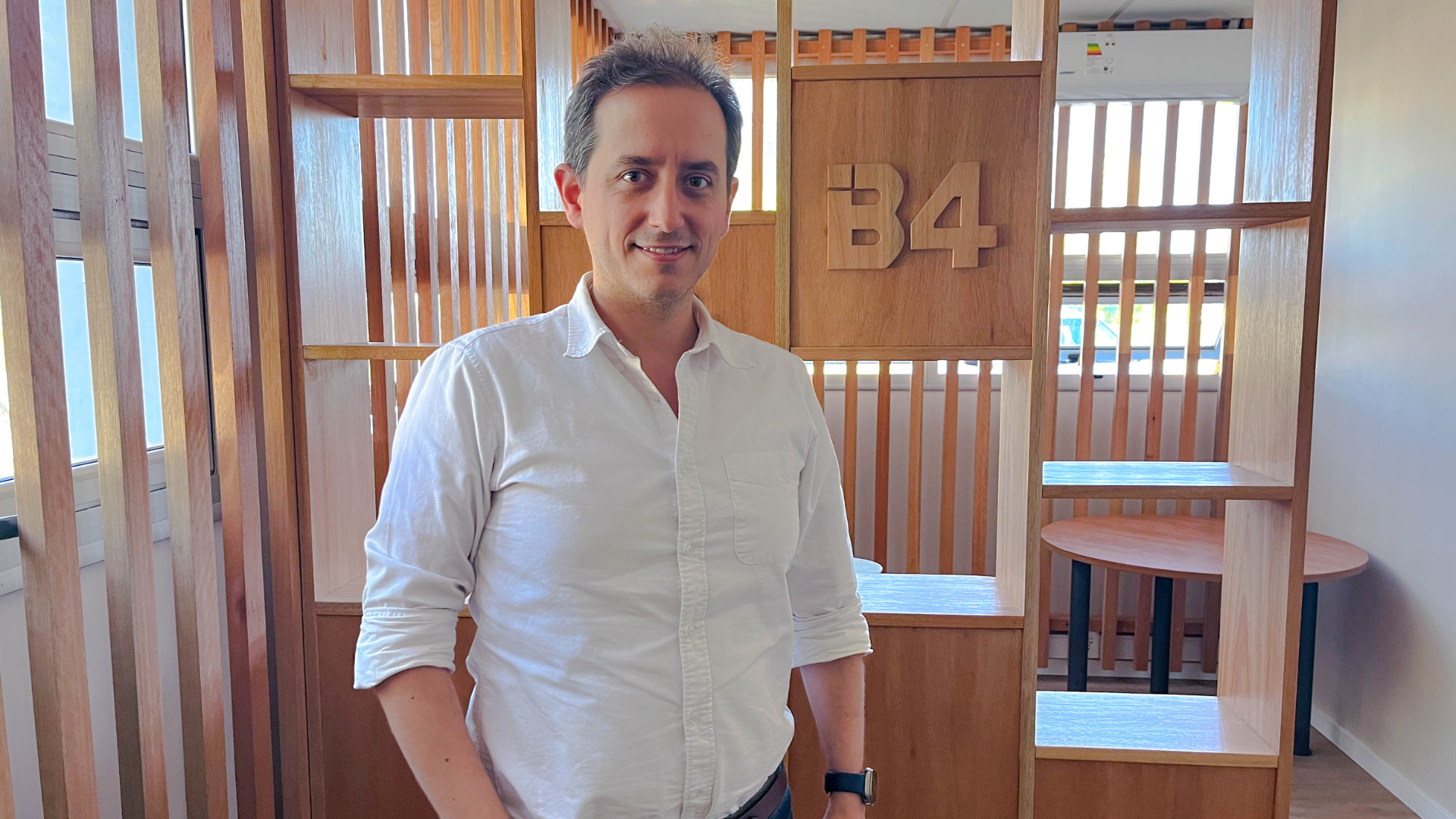Carlos Palma worked for years as a manager and Head of Product at the fintech company dLocal, until he decided in 2025 to make a career shift and join B4-RNA as CEO. The startup is one of the ventures supported by LAB+, the company builder of the Institut Pasteur de Montevideo. B4-RNA — which received a US$ 750,000 investment in 2024 — is developing a new diagnostic methodology for the early detection of cancer using a sequencing technique that allows for the “reading” of a particular type of RNA found outside cells, requiring only a blood sample from the patient.
In addition to contributing his expertise to B4-RNA, Palma also works with Henka, a consulting firm that helps companies implement artificial intelligence tools. He holds a degree in computer engineering and an MBA from the University of Oxford.
In this interview, he shares what motivated his leap from dLocal to B4-RNA, his goals for growing the startup, and how artificial intelligence is becoming a key tool in both biotechnology and finance.
You worked for years in the Fintech sector. What motivated you to transition to B4-RNA?
B4-RNA presents a huge challenge, and what’s being achieved from Uruguay in this field is fascinating. I met Juan Pablo (Tosar, founder of the startup) — as often happens among Uruguayans — at a barbecue. He told me about the startup and the research behind it, and I saw real potential for synergy between his work and the areas where I could contribute with my background.
On a personal level, it’s an honor to be part of a project with the potential to make such a massive impact. I think it was a fortunate coincidence that Juan Pablo and I crossed paths and saw the potential in each other’s work. Life is short, and I believe we have to be intentional about what we want to do with it. This felt like the right path to follow. Even though we’re tackling a very tough problem in a highly competitive industry, it’s worth the effort to try to reach our goals.
Biotech and Fintech are quite different sectors. What are the similarities and differences in the approaches you’ve had to take in both fields?
When I joined dLocal, it was already gaining traction. There were 180 employees and the company was in a growth phase. I came on board in 2019, about a year and a half before it went public, so I experienced the transition from a startup to a publicly traded company with all the added responsibilities and obligations.
B4-RNA is still very much a startup — both in structure and in the nature of its work, it’s radically different from dLocal. But there are some similarities in the areas I’ve worked in. For example, at dLocal I focused on fraud prevention, which involved working with huge amounts of data. We had to find patterns in a sea of data to identify small signals that could indicate fraud, with the goal of protecting our customers and investors. That process relied heavily on machine learning and AI.
In biology, we’re doing something very similar: we sequence molecules found in the blood and look for signals in a “noisy” environment. We often have to go through several filtering and analysis steps to identify patterns that indicate something significant.
That said, the biggest challenge for me has been diving into a completely new field. I’m not entirely unfamiliar with it — I’m a computer engineer and I wrote my thesis on bioinformatics. But I hadn’t dived into biology since then, so in a way, it feels like I’m coming full circle.
To get up to speed with biology and the healthcare industry, I’m relying on new tools, including AI. We’re also leaning on a growing local network of biotech companies for support.
How are you currently using or planning to use artificial intelligence at B4-RNA?
We use it extensively. Once we capture the RNA molecules circulating in the blood, we have to sequence them and then identify the patterns to enable cancer diagnosis — and this entire process is driven by AI, due to the massive volumes of data involved.
But AI isn’t just useful on the scientific side — it’s also a huge asset for business operations. We’re using it to analyze market trends, industry movements, and news. The problem we’re trying to solve — early cancer detection — is a large and highly competitive space, with a lot of interest and many players. So, AI is essential for navigating all of that information.
What are your future goals for B4-RNA and what challenges do you foresee?
My main goal is to raise a funding round by the end of this year or early next year. One of the key challenges we’re working on with the research team is generating enough validation to show potential investors the true value of what we’re building. We’re aiming to produce preliminary results that demonstrate our technology’s effectiveness in early cancer diagnosis.
Another challenge is how we position ourselves in foreign markets. We’re targeting the United States as our primary market — not only because it’s the largest for this kind of diagnostic technology, but also because getting validation there could open doors to other markets.
Being based in Uruguay makes it harder to establish those initial connections. That’s why we’re learning how the industry operates in the U.S., understanding regulations, market dynamics, and identifying the right partners to move the project forward there.
Finally, I’m also helping to build out a variety of internal processes and work methodologies that involve technology. In our field — and especially in our company — we need to be extremely careful with the information we handle, such as data from patients. That means protecting sensitive information not just in the lab, but throughout the entire data processing chain, especially as we move closer to production.

